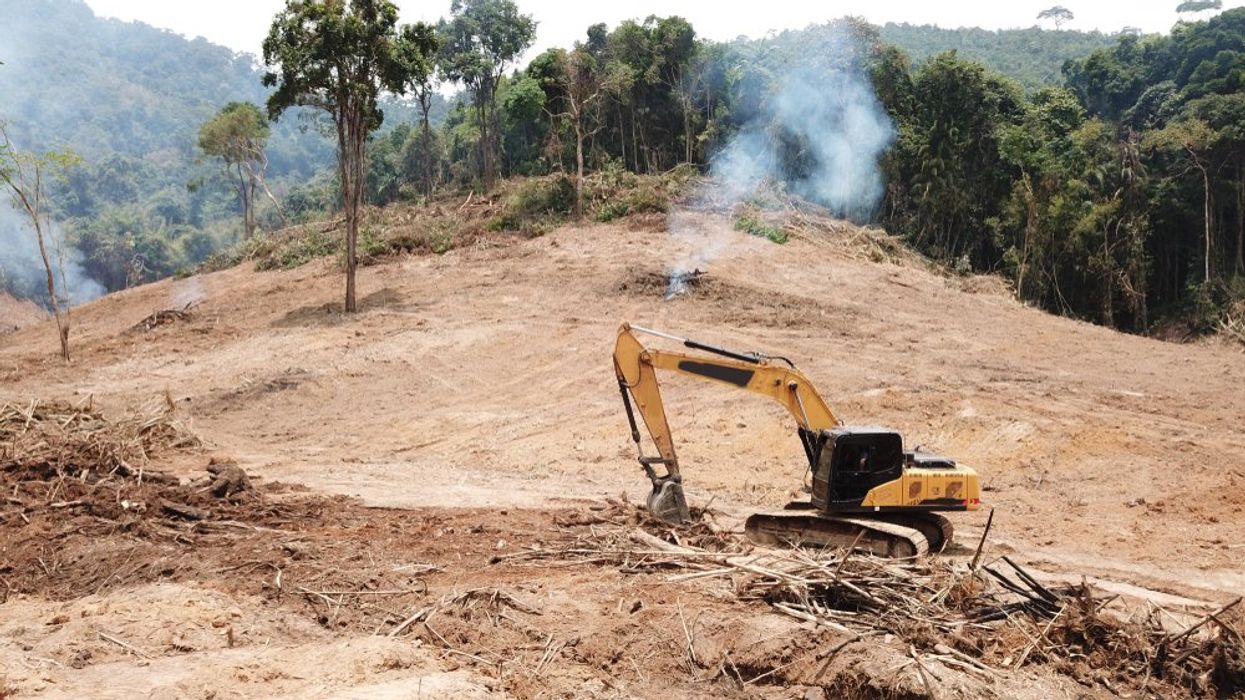Despite global pledges to protect and preserve the Rainforest, deforestation in the tropics has accelerated within the past year.
According to a report published Tuesday by Global Forest Watch, primary rainforest in the tropics was lost in 2022 at a rate 10 percent higher than that in 2021. The loss totals 4.1 million hectares — 11 soccer fields of forest — per minute, which produced 2.7 gigatonnes of carbon dioxide emissions — equivalent to India’s total annual fossil fuel emissions.
"Protecting forests remains one of the most effective ways to mitigate global climate change and protect the people and biodiversity that depend on them — but time is running out," the report states.
Brazil saw the most forest loss in 2022, with the rate of primary forest loss increasing by 15 percent, the "vast majority" occurring in the Amazon. This was directly caused by deforestation, which reached its highest levels since 2005.
Brazil's forest loss accounted for 43 percent of the global forest loss, with 1.8 million hectares and 1.2 Gt of carbon dioxide emissions — 2.5 times the country's annual fossil fuel emissions.
However, 2022 was the last year in office for far-right former president Jair Bolsonaro. The report believes that conditions will improve under newly-elected progressive Luiz Inácio Lula da Silva, though the changes may not be noticeable until 2024 at the earliest.
Brazil has the most rainforest of any country in the world. The nation with the second-most rainforest, the Democratic Republic of the Congo, also saw steep losses of approximately 500,000 hectares in 2022.
The report notes that this alarming forest loss comes in the first year following the Glasgow Leaders’ Declaration on Forests and Land Use, in which 145 world leaders vowed to cease and begin work to reverse forest loss by the end of the decade. Leaders from both Brazil and the Democratic Republic of the Congo signed the pledge at the time.
"Instead of consistent declines in primary forest loss to meet that goal, the trend is moving in the wrong direction," the report reads. "Indeed, humanity is not on track to meet major forest-related commitments."


















































